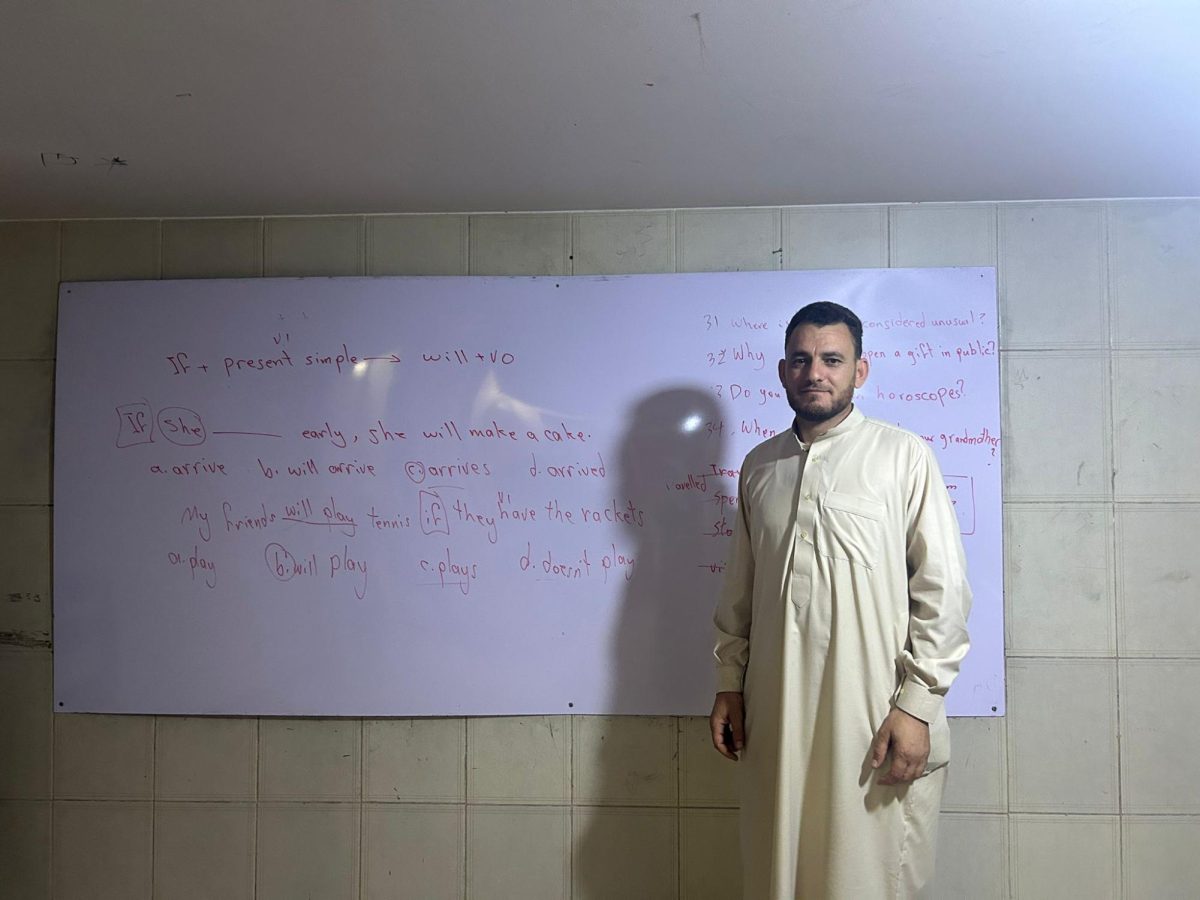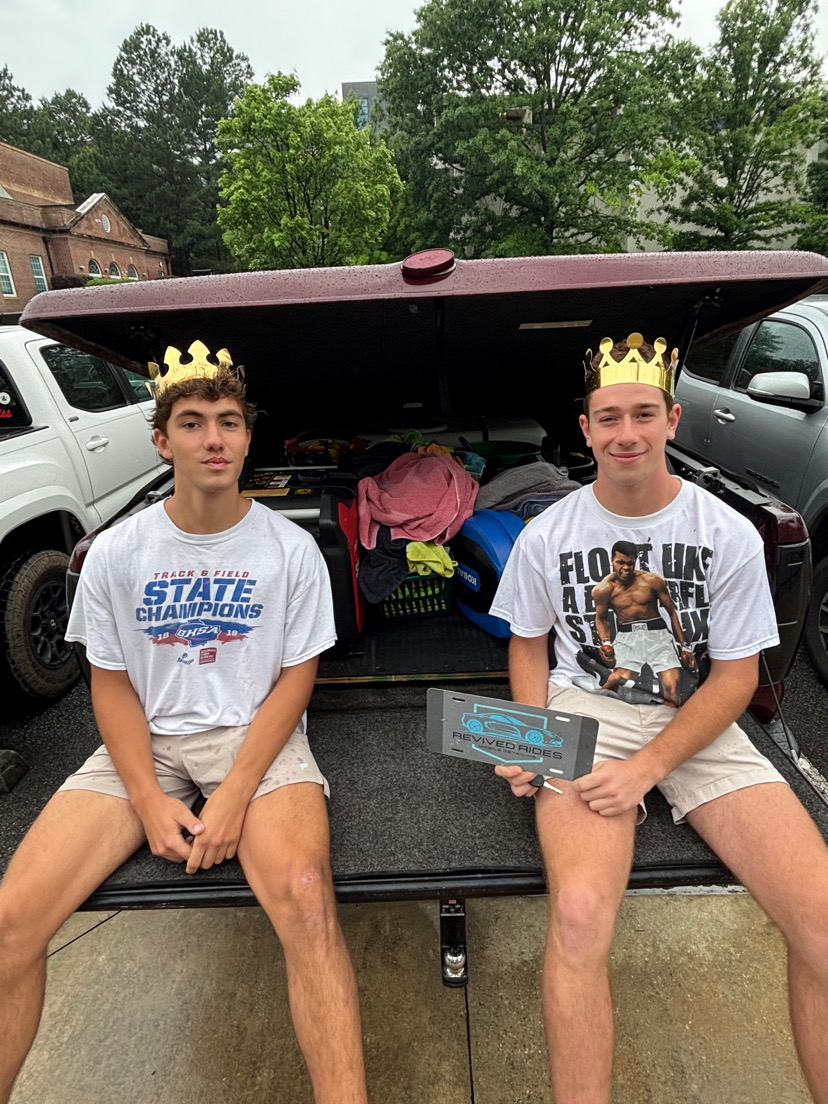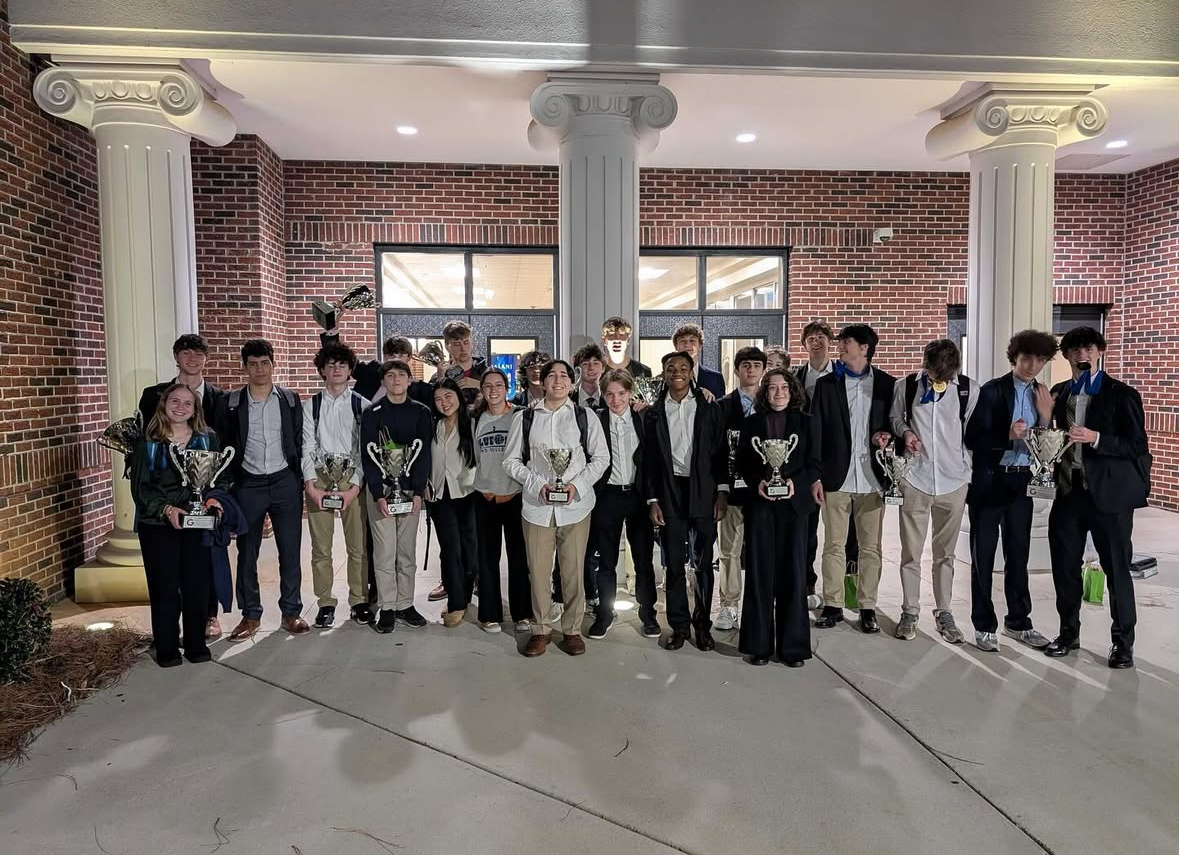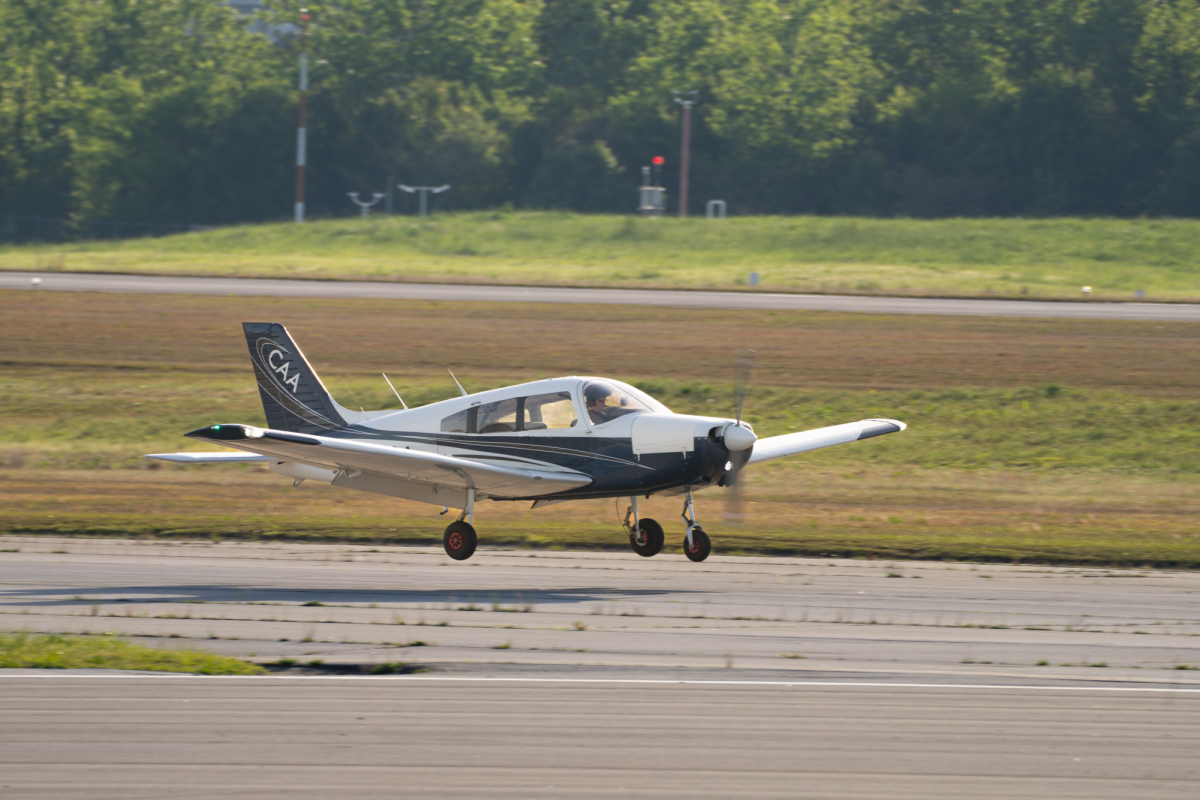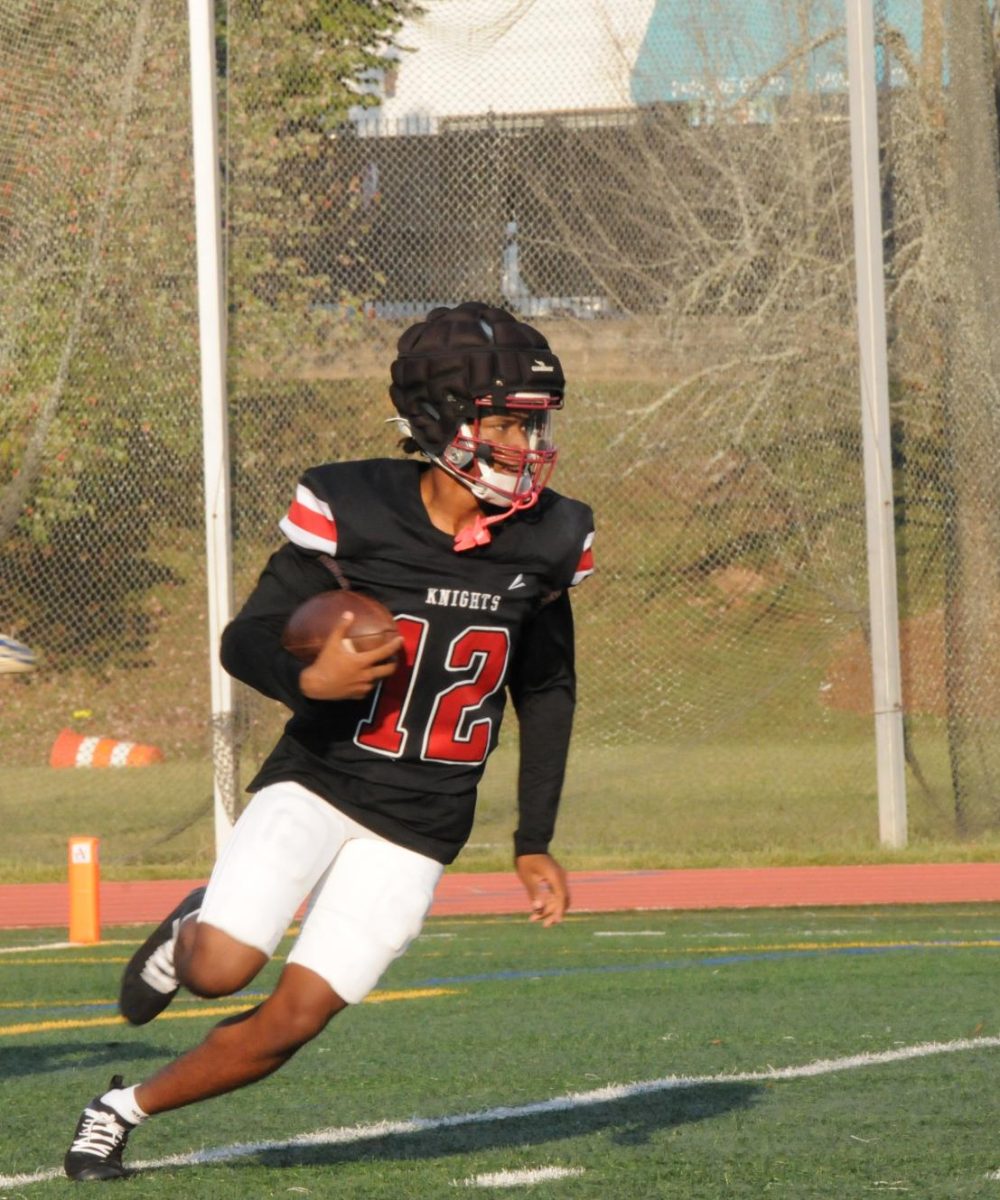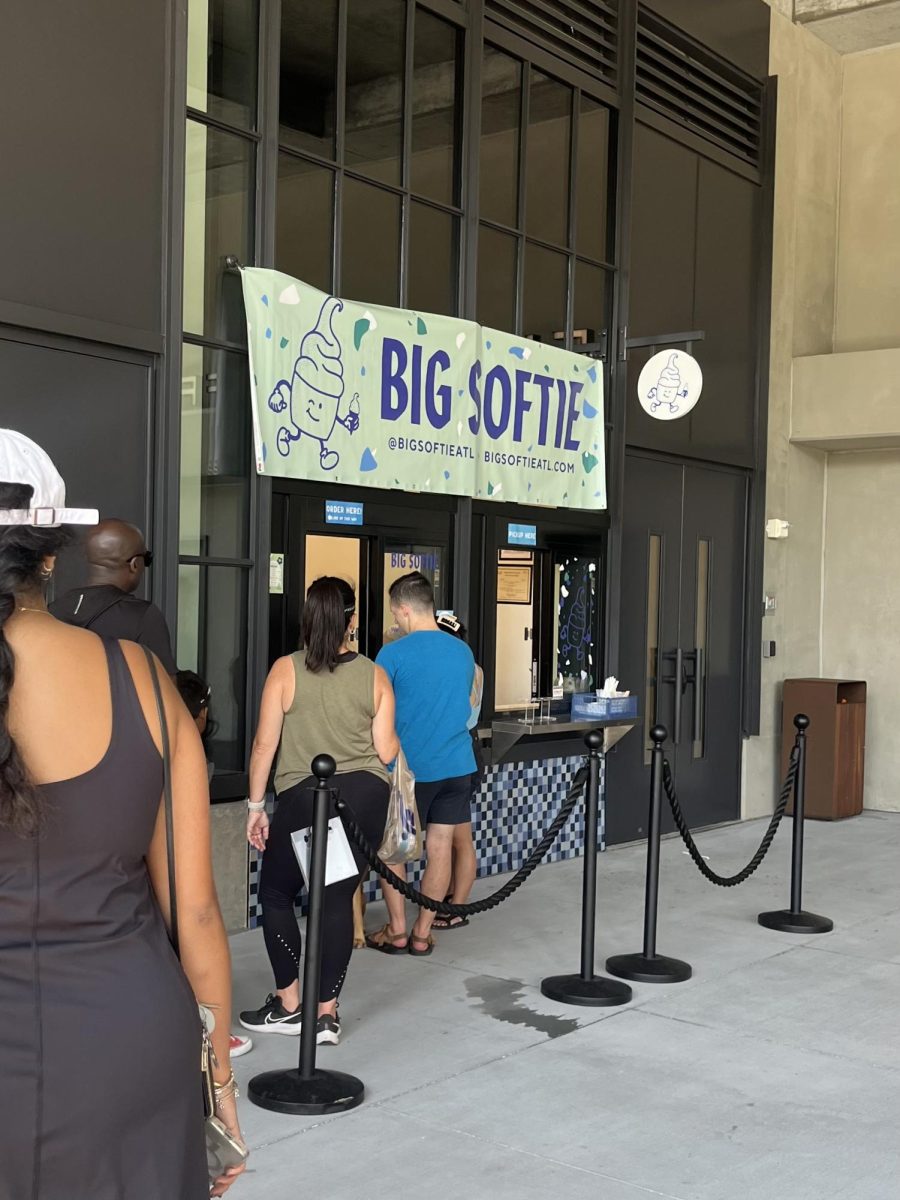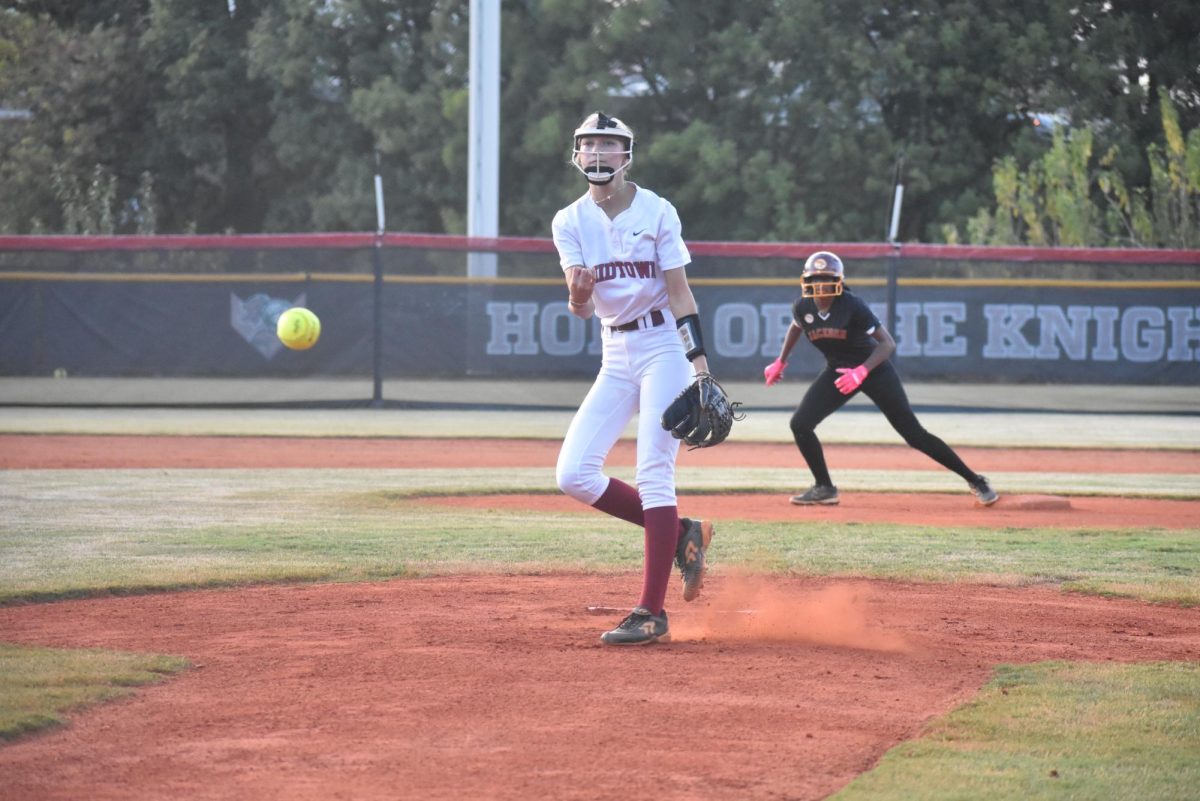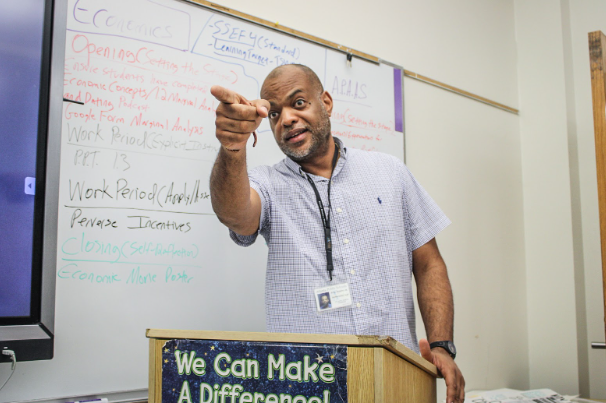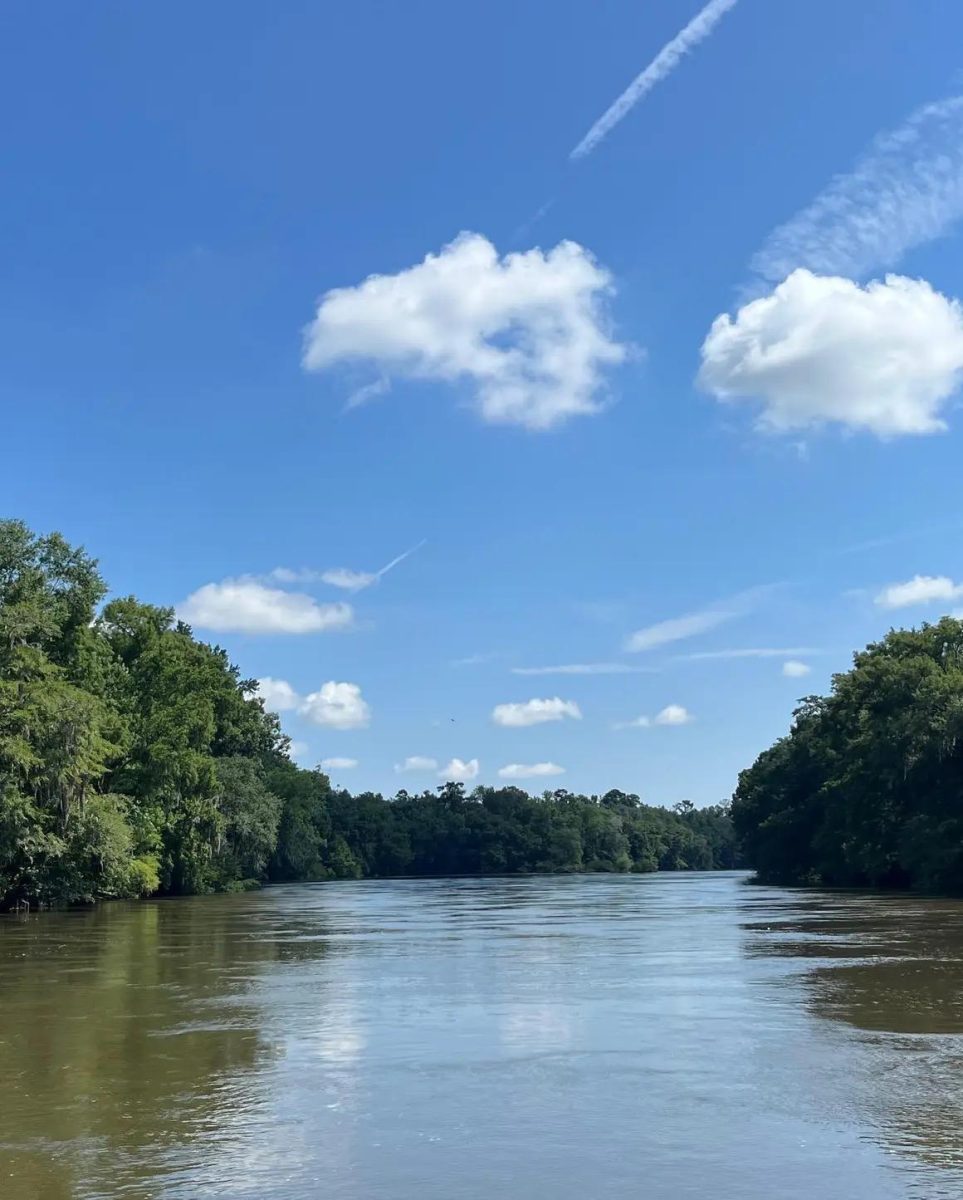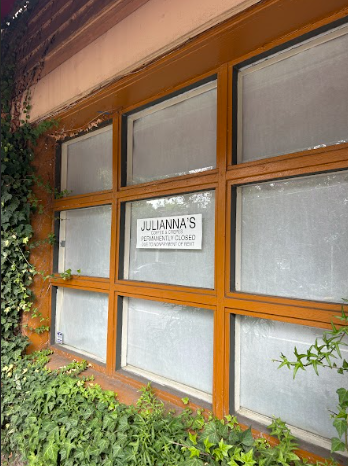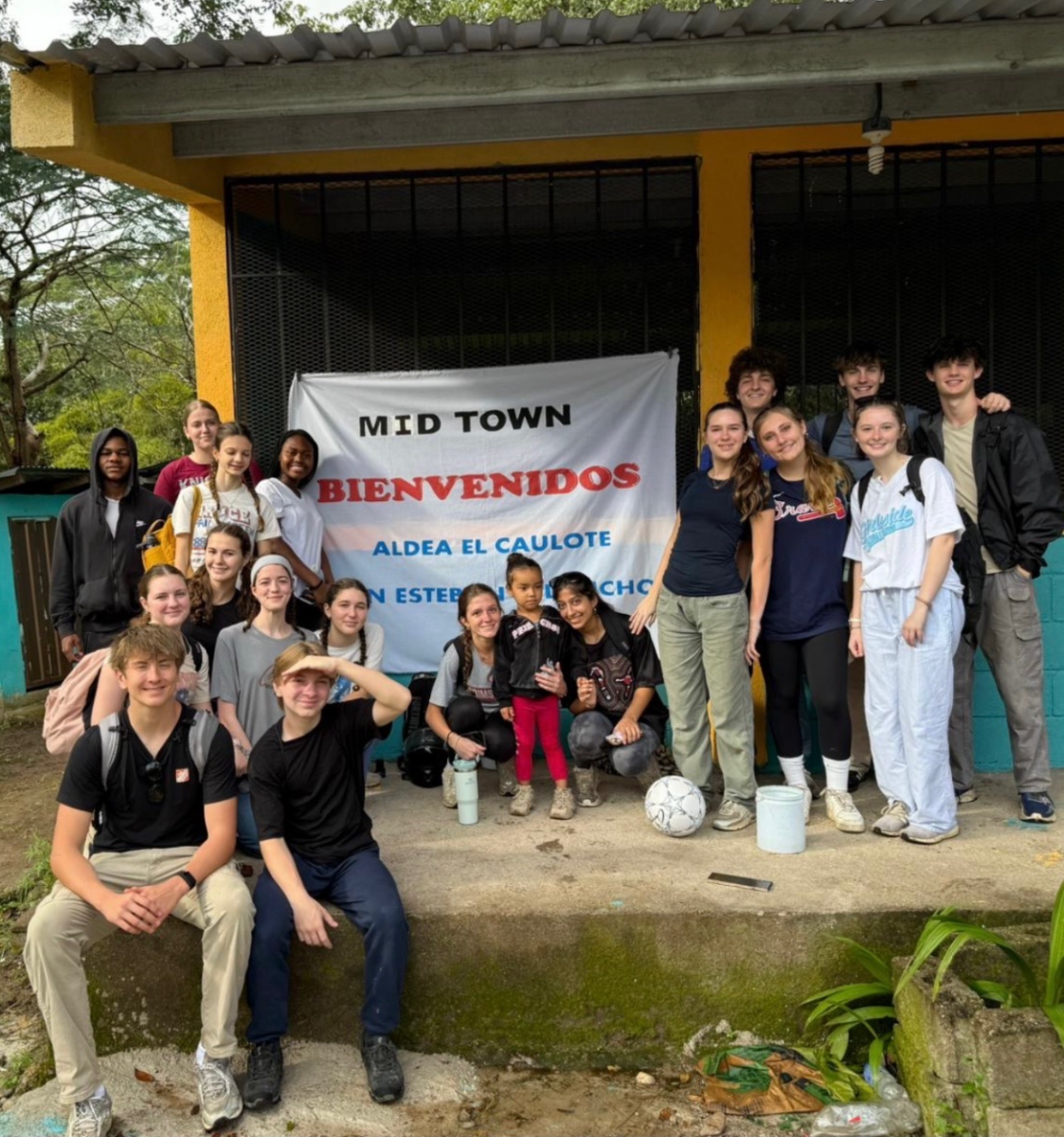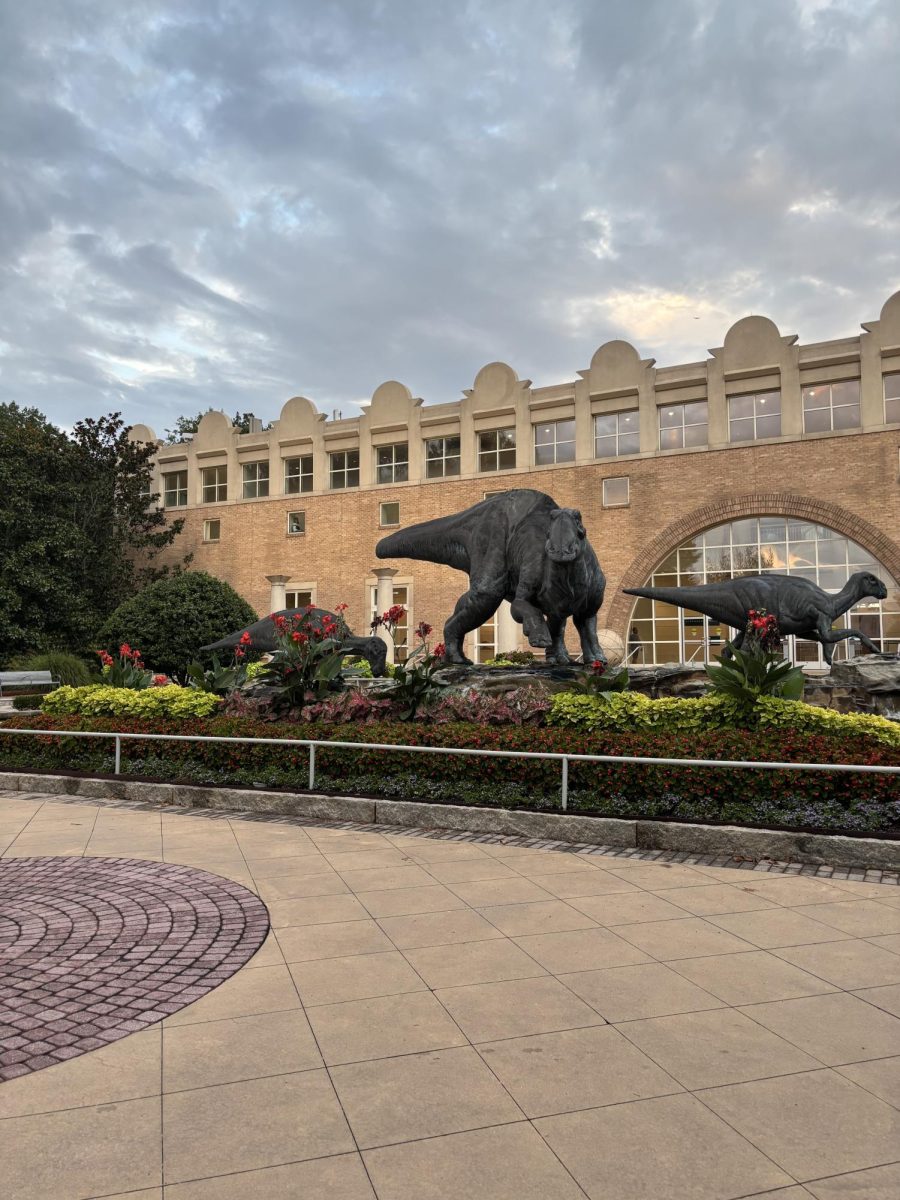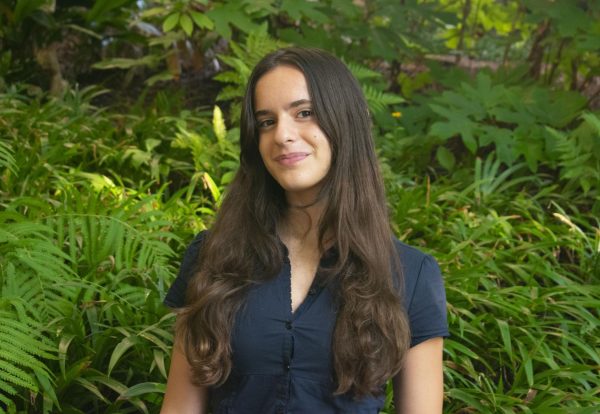Sophomores Danny Woodworth and London Alden and junior Guthrie Nash completed their fall semester of the 2024-25 school year at the Outdoor Academy, a semester-long boarding school located in Pisgah Forest, NC.
Woodworth said attending the Outdoor Academy allowed her to form close bonds with like-minded students.
“My experience at Outdoor Academy gave me a chance to experience intentional community,” Woodworth said. “Everyone there wanted to be there and worked to maintain healthy relationships. We got to learn in small groups and were given opportunities to build trustworthy relationships with our teachers.”
The class consisted of 12 students. As a result, Nash believes students were given a better understanding of coursework.
“The environment is very supportive,” Nash said. “Because of the small amount of students, there is a lot more support in class, around campus and while in the outdoors.”
During their semester away, the class participated in different outdoor trips and activities.
“We did three backpacking trips, a climbing trip, a canoe trip, classes in the field and a two-night solo,” Nash said. “A lot of what we were learning was related to the land we were using. We were using Pisgah national forest and learning about national forests in U.S. history.”
The school incorporates the environment into its lessons with classes taking place outdoors.
“Our curriculum was very similar to public school, but we took most of our classes outside,” Woodworth said. “When we wrote in English, we wrote about the environment. In Environmental Science, we learned about the nature we were in. My biggest class was 12 people, and it was easier to learn in smaller classes.”
Woodworth believes the Outdoor Academy curriculum helped encourage students to take on new challenges.
“The outdoor experience gave everyone there, regardless of experience, a chance to learn and push themselves through a mix of different outdoor programs,” Woodworth said.
Nash said students were often involved in group activities and received individual help from teachers.
“The biggest difference between Midtown and Outdoor Academy is the small class sizes,” Nash said. “The teacher can support you much easier. There are also a lot more full class discussions and projects including everybody.”
Alden said it was challenging to transition from Midtown to the Outdoor Academy, but ultimately found it to be the right decision.
“[Outdoor Academy] was really great,” Alden said. “At first it was hard, but it was something I needed. [Outdoor Academy] will definitely help shape me when I’m older, and I don’t know what I would do if I hadn’t gone. It was life-changing.”
Alden said one of the most meaningful aspects of her experience at Outdoor Academy was building close friendships.
“I would say that I got to know pretty much everyone on a really close level,” Alden said. “I feel like I got to know people better in three and a half months than three and a half years. They are relationships I don’t want to lose.”
Woodworth said she has struggled with adjusting to new routines since returning to Midtown.
“Transitioning back [into Midtown] has definitely been challenging,” Woodworth said. “Outdoor academy is a heavily structured program, so immediately dropping back into a break and not being in a routine was immediately challenging. We were all missing each other and struggling with the shift of not always being together.”
Alden said students still keep in touch with one another. They use different forms of online communication and will reunite on April 26 and 27 for Outdoor Academy’s 30th year reunion.
“I try to call them and we have a WhatsApp [group chat], which I try to be active on,” Alden said. “Whenever someone is coming to Atlanta or visiting, I want to make it my mission to see them.”
Woodworth said the school focuses on building a strong community and supportive school environment. She believes students had to work hard to maintain relationships, which helped them become closer as a group.
“We were all in such a tight knit community, we played every role for each other,” Woodworth said. “We were dorm-mates, classmates, friends, co-workers and then family. When you don’t have a chance to walk away and interact with other groups, you are forced to work out any problems you have, and the close proximity pushed us to becoming family.”


